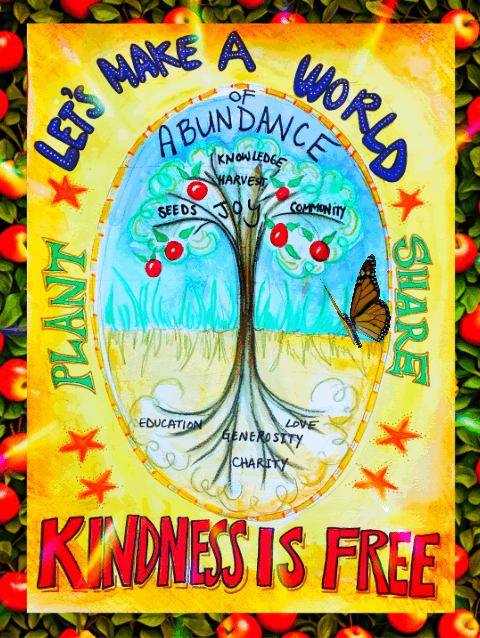Imagination is a superpower
Why We Make
I’m here to make a case for art as activism — not as slogans or spectacle, but as the daily, human work of creating something where there was nothing. I don’t care what you make. I care that you make it. In an age when cruelty is loud and despair seductive, every act of making — a drawing, a poem, a meal, a shared story — is an act of resistance.
Some say the kindness camp has lost the culture war. I don’t believe that. I believe that prosocial art-making — creative work rooted in connection and community — is one of the most powerful ways to spend your energy right now. It builds resilience, restores meaning, and reminds us of our shared humanity.
This series is an argument for why creativity matters more than ever: what happens when we neglect it, how art repairs fractures in the world and within us, why we must keep creating when it feels impossible, and how small, steady acts of making can sustain us. Because art isn’t what we do once everything is okay — it’s how we make everything okay.
Part 1: The Consequences of an Unused Imagination
Imagination isn’t decoration. It’s the quiet engine that shapes how we think, adapt, and make meaning. It turns chaos into pattern and suffering into story. When we stop using it, something essential in us begins to fade.
First, our inner world contracts. Creativity keeps the psyche flexible; it’s how grief finds language and confusion becomes clarity. Without it, problems feel fixed and pain remains mute. Life narrows into repetition. The water stagnates.
Second, chaos arrives unfiltered. Imagination lets us transform experience — it’s how we search for new meaning in the evidence and how we find the silver lining. Without that capacity, our option is resignation. What we cannot picture, we cannot build.
We also lose the thread between us. Art and story are how humans say I am here. Are you here too? When we stop creating, we stop leaving traces for others to find. Shared symbols dissolve. Loneliness deepens, not because we are more alone, but because we lose the language to reach across the gap.
And into that emptiness, power steps in. Where imagination falters, dogma and spectacle thrive. They offer certainty instead of curiosity, consumption instead of creation. We slip from participants into spectators. This is why authoritarian systems so often fear artists: imagination keeps open the possibility that the world could be otherwise.
A society that abandons its creative force becomes brittle. A person who ignores it becomes smaller than they are meant to be.
The invitation is simple: keep the current moving. Make things, tell stories, shape experience into form. Invite someone to paint! Not because the world will collapse without your work, but because something vital in you and around you grows stronger when you do. Imagination keeps us supple. It reminds us that the future is not fixed — that the world, and we within it, are still in motion

